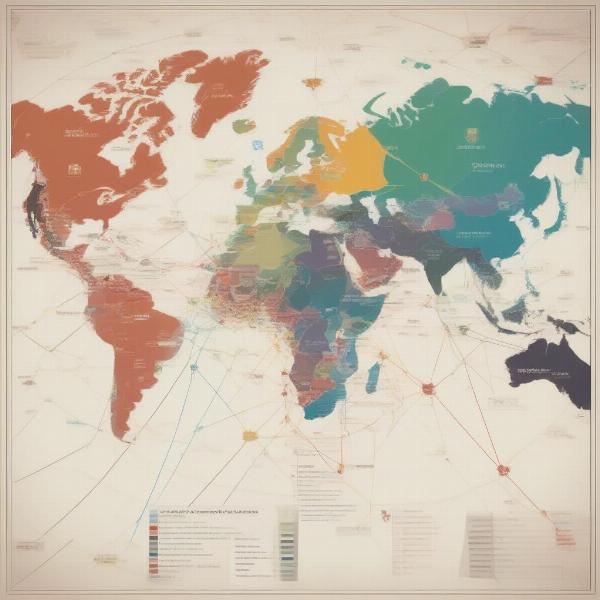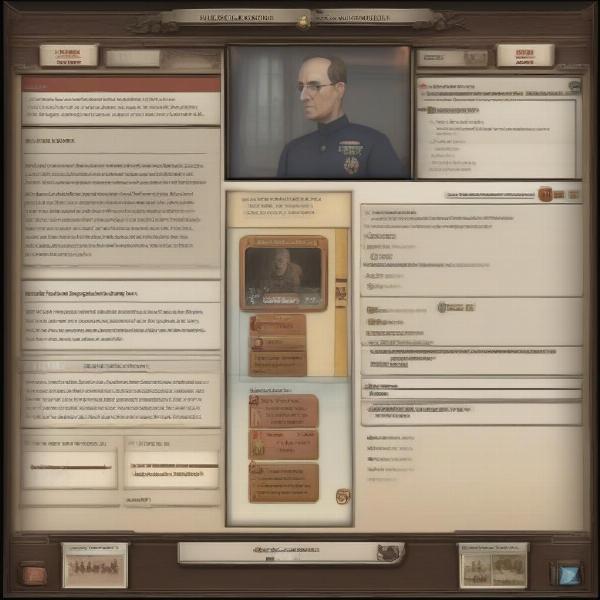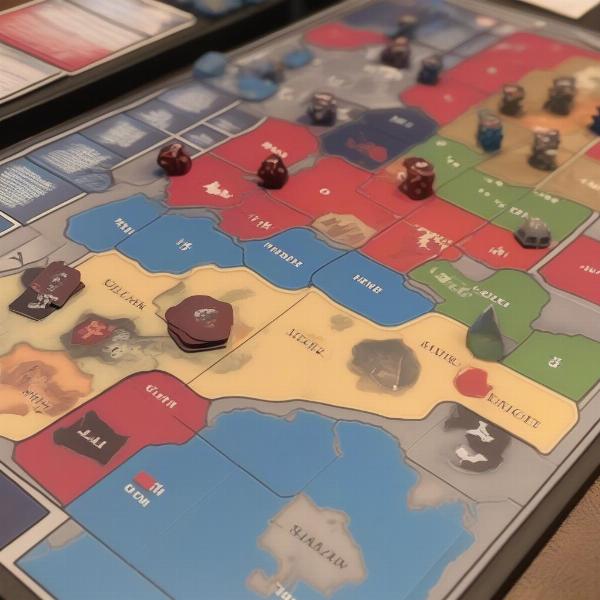The allure of [Cold War Strategy Games] lies in their ability to simulate the tense geopolitical landscape of the mid-20th century. Here at SupremeDuelist.blog, we understand that these games aren’t just about military might; they’re about economic maneuvering, political intrigue, and the ever-present threat of nuclear annihilation. This article will explore what makes these games so captivating, diving into their mechanics, and highlighting some of the most compelling examples. We’ll examine the strategic depth they offer, from managing resources to influencing global events, and why they continue to hold a special place in the hearts of strategy game enthusiasts.
These games demand more than just tactical prowess; they require strategic thinking on a global scale. From managing espionage networks to engaging in proxy wars, they offer players a chance to rewrite history or simply experience the chilling reality of Cold War tensions. We will delve into the core mechanics, assess their realism, and provide insights into how to master these complex simulations. Let’s explore the intricate world of cold war strategy. You can also explore more about the historical background of such conflicts with a related topic like [american civil war board game] on our site, where you can find similarly engaging content.
What Defines a Cold War Strategy Game?
Cold War strategy games typically simulate the geopolitical climate between the United States and the Soviet Union from the end of World War II to the collapse of the USSR in 1991. Unlike conventional war games focused on battlefield tactics, these games emphasize a broader range of strategic elements. This often includes diplomacy, espionage, economic warfare, and ideological conflict. The goal isn’t simply to conquer territory; it’s to assert global dominance through influence and proxy wars, all while avoiding direct confrontation that could lead to nuclear war.
The core mechanics often involve managing resources, developing technology, and building political influence in various countries. The strategic choices revolve around where to allocate resources and efforts – bolstering your own nation, supporting allies, or destabilizing rivals. A key element in these games is the threat of nuclear war, often presented as a game-ending scenario if specific escalation thresholds are crossed. This tension adds a layer of high-stakes decision-making that’s uniquely tied to the Cold War era.
 cold war strategy game map
cold war strategy game map
Key Gameplay Mechanics in Cold War Strategy Games
Several mechanics are common among Cold War strategy games. These include:
- Political Influence: Gaining control over nations through diplomacy, economic aid, or covert operations.
- Economic Warfare: Undermining the enemy’s economy while bolstering your own.
- Technological Advancement: Researching new technologies, often with military and political applications.
- Espionage and Covert Ops: Conducting secret missions to disrupt enemy plans.
- Military Buildup: Deploying troops, nuclear weapons, and naval forces in key strategic locations.
- Propaganda and Ideological Warfare: Winning over public opinion through media control.
- Crisis Management: Dealing with various global crises that can escalate or de-escalate tensions.
These mechanics intertwine to create a complex, strategic tapestry. Players must balance immediate objectives against long-term strategic goals. For example, funding a proxy war might gain you immediate influence, but could also lead to economic strain or an increased risk of conflict. It’s this delicate balancing act that defines the challenge and rewards of these games. In some aspects the economic decisions might bring you to the same choices made in [real war rogue states game].
Mastering Cold War Strategy: Tips and Tricks
To truly succeed in Cold War strategy games, one must go beyond basic tactical planning and implement a comprehensive strategic approach. Understanding how to manage these mechanics effectively is key to success. Here’s how:
- Prioritize Economic Strength: A strong economy is the foundation for all other strategies. Don’t overextend yourself militarily if it harms your economic base.
- Diversify your Influence: Don’t put all your eggs in one basket. Aim to spread your influence across multiple continents.
- Maintain a Robust Espionage Network: Intelligence is key to anticipating enemy moves and countering their plans.
- Adapt to Changing Circumstances: The world is dynamic; you must be able to adjust your strategies to unexpected events and challenges.
- Beware Nuclear Escalation: Understand the risk of nuclear war and take calculated decisions to avoid it.
By adopting a holistic approach, you can enhance your chances of success. It is also important to consider all the avenues available to you, perhaps even if you want to find out [how much is cold war on xbox with game pass] as a way to explore another strategic scenario.
 diplomacy cold war strategic table
diplomacy cold war strategic table
Realism vs. Gameplay: Striking the Balance
One of the most difficult aspects of designing a Cold War strategy game is striking the balance between historical accuracy and engaging gameplay. While some games strive for a high degree of realism, others prioritize gameplay mechanics that allow for more player agency and varied outcomes. Games that favor realism often use complex rule sets and try to emulate the historical limitations and tensions of the era. Games that focus on gameplay might simplify mechanics, allowing players to influence world events more directly or even rewrite history.
The degree of realism varies significantly between games. Some simulate global politics on a very granular level, incorporating detailed economic models, technological advancements, and intricate diplomatic relationships. Others may offer a more abstract representation of the geopolitical landscape. Ultimately, the best Cold War strategy games find a balance that is both informative and engaging.
“The best cold war strategy games capture the essence of the conflict, offering players a meaningful strategic experience,” says Dr. Evelyn Reed, a historian and game design consultant. “They are not just about winning; they are about understanding the complexity of the era.”
Exploring Popular Cold War Strategy Game Titles
Several titles have gained popularity in the cold war strategy game genre. Each one offers a unique take on the conflict. Here are a few notable examples:
- Twilight Struggle: A card-driven board game often cited as one of the best examples of the genre. It focuses on the political, economic, and ideological conflict between the United States and the Soviet Union.
- DEFCON: A real-time strategy game focused on nuclear war. The game’s unique blend of tension, global strategy, and fast-paced action has made it a standout in this subgenre.
- Nuclear War: A classic card game that presents a humorous, albeit dark, depiction of nuclear conflict. It’s known for its fast-paced nature and engaging game play.
- Hidden Agenda: A game simulating the covert actions and espionage tactics of the Cold War.
- Crisis in the Kremlin: Focuses on the micro management of the Soviet state in the 1980s.
These examples, among others, demonstrate the variety available within the genre, each providing different perspectives and challenges. In addition, some titles might even be available at your local game store. For those wanting to bring their strategic thinking to life, you might want to consider something like [buy this war of mine board game] which brings a different kind of war game to your tabletop.
 twilight struggle board game
twilight struggle board game
Why Cold War Strategy Games Remain Popular
Despite the end of the Cold War, these games continue to resonate with players. Several factors contribute to their enduring popularity:
- Historical Interest: The Cold War remains a fascinating period of history, full of intrigue, high-stakes diplomacy, and the constant threat of nuclear conflict.
- Strategic Depth: These games offer complex decision-making scenarios, requiring players to consider multiple factors and balance diverse objectives.
- Replayability: Many Cold War strategy games feature variable elements that make each playthrough unique.
- Alternate History: They offer the opportunity to explore “what if” scenarios and play out different historical possibilities.
- Intellectual Stimulation: The games provide a unique blend of strategy, history and social science, making them mentally stimulating and rewarding.
These games offer a blend of history, strategy, and intrigue that is hard to find in other genres.
“Cold war strategy games continue to capture the imagination because they simulate a time of great consequence and complexity,” says James Harding, a game analyst. “The players don’t just play; they experience.”
The Future of Cold War Strategy Games
The genre continues to evolve with new titles emerging and existing games receiving updates and expansions. The increasing focus on historical accuracy and complex simulation offers new opportunities for game developers. We are likely to see games that tackle more niche aspects of the Cold War era and even go beyond the traditional US-Soviet dynamic, exploring proxy wars and localized conflicts in more detail. Virtual reality and enhanced AI are likely to influence the future of these games, providing players with new dimensions of strategic engagement. The future of cold war strategy games seems bright, promising players unique and challenging experiences for many years to come.
Ultimately, the appeal of cold war strategy games lies in the challenges they present. They provide a captivating way to engage with a critical period in history, offering lessons in diplomacy, economics, and strategic thinking. These games serve not only as entertainment, but also as thought-provoking simulations that encourage players to think critically about the world around them. Perhaps one day, strategic thinking will also be as thrilling as following your favorite [civil war football game score].
Conclusion
Cold war strategy games provide a unique blend of historical immersion and strategic depth, and for those who appreciate complex challenges and a look into the past, they offer a rewarding and intriguing experience. Here at SupremeDuelist.blog we aim to bring to you the best strategic insights and game analysis. As these games continue to evolve, they are sure to remain a popular choice for strategy enthusiasts. Whether you prefer the intricate detail of a board game or the real time action of a computer simulation, the world of Cold War strategy has something to offer every player looking to test their strategic skills.
Leave a Reply